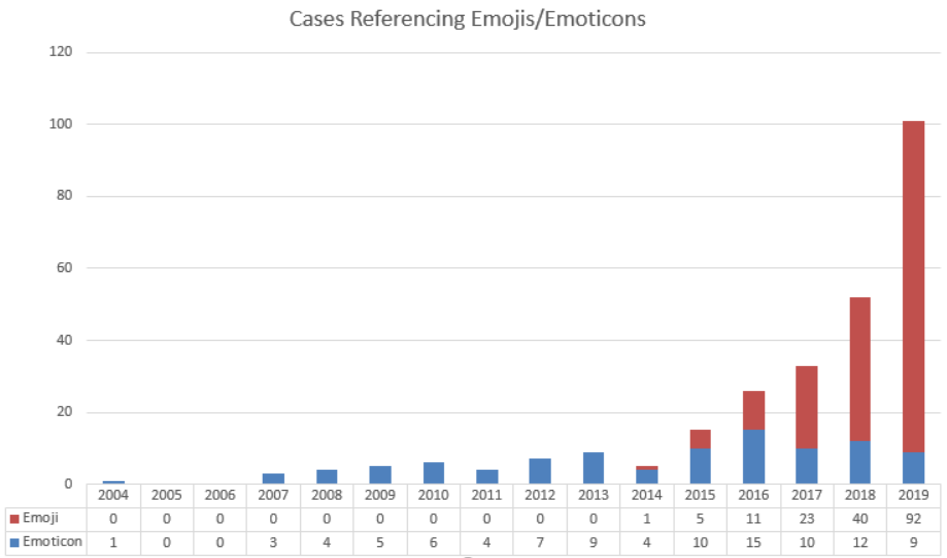2019 Emoji Law Year-in-Review
Some highlights from emoji law in 2019:
(Continued) Exponential Growth of Case References
I found 101 cases in 2019 that referenced “emoji” or “emoticon.” That nearly doubles the number from 2018, reinforcing that emoji law continues to grow exponentially. You can see the J curve in this chart:
Note 1: I indexed the term actually referenced in the opinion, even when it was clearly incorrect.
Note 2: a small number of cases referenced both emojis and emoticons. I counted these only in the emoji category.
As you can see, over 90% of the references in 2019 were to emojis as opposed to emoticons. Emoticon caselaw references peaked in 2016 and have declined since. Emoji caselaw references have basically doubled every year since 2015.
I have posted my full dataset of 271 caselaw references.
Most Interesting Cases of the Year
- An emoji did not terminate a parent’s interest in his child, but different facts could have led to a different outcome…?
- Smiley faces are copyrightable, and minor variations could still infringe.
- In the sex trafficking context, the crown emoji doesn’t mean what you think it means.
- In witness intimidation cases, courts don’t need experts to interpret the meaning of the rat emoji.
- Even when a court tried to depict emojis in its opinion, it still got it wrong.
Other Tidbits
- I got the answer to the Israeli chipmunk emoji mystery!
- Emoji sequences don’t have well-established grammar rules, which exacerbates the risks of confusion and misunderstanding.
- Online databases are struggling to properly index emojis and emoticons.
- I gave a number of talks about emoji law. Two of my favorites:
- My CLIO Cloud Conference talk from October
- My talk for the Internet Law Student Organization from March
- Hawaiian readers: I’m coming to the islands to talk about emoji law the week of April 6. Let me know if you want more details or would like to visit.
See last year’s year-in-review, the Nov. 2018 post “Everything You Wanted to Know About Emojis and the Law,” and my big paper on Emojis and the Law.


Pingback: News of the Week; January 29, 2020 – Communications Law at Allard Hall()